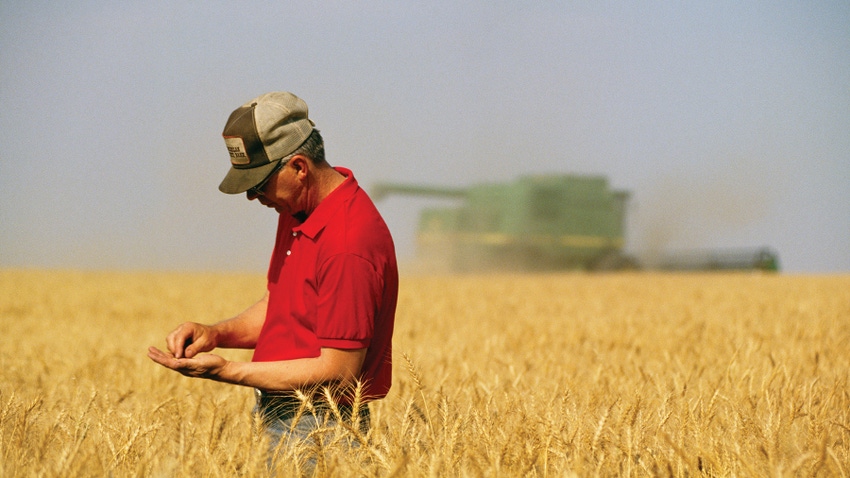January 4, 2024

By Kathleen Forman
Why are farmers disproportionately at risk for poor mental health, opioid addiction, and even suicide? That's a question David Buys, Mississippi State University associate professor and Mississippi’s state health specialist, seeks to answer through an initiative he's leading.
By digging deep to find the root cause, Buys believes steps can be taken to manage the mental health risks farmers face.
Buys began examining addiction and mental health in farmers and ranchers in 2017 through grants provided by the United States Department of Agriculture and the Substance Abuse and Mental Health Services Administration. After a report from the American Farm Bureau Federation the same year revealed three out of four farmers and farm workers in the United States say they have been impacted by opioid addiction., Buys and his team focused on that issue. From this focus-shift, the Preventing Opioid Misuse in the Southeast (PROMISE) Initiative was born.
Addressing addiction
This initiative addresses opioid addiction preventively by educating the community on how to properly take care of their mental health and cope with farm stress in healthy and productive ways.
“We started trying to understand what the drivers of opioid addiction in Mississippi are,” Buys said. “Farmers do not wake up one day and decide to take unhealthy amounts of opioids. Something drives farmers to this point; we have been working on our understanding the why and trying to help move the needle.”
In the agricultural industry, there are many variables outside of the control of the producer. Weather, disease, and the ever-changing economy affect areas of agriculture from row crops to dairy cattle, which creates a high stress work environment.
Through the PROMISE Initiative, Buys and his team implemented programs to increase awareness for farm stress and addiction. They created and delivered training programs for Extension agents, launched social marketing campaigns, and produced an EMMY award winning film, “On the Farm.”
Collaborating organizations
They collaborated with organizations and universities across the Southeast and connected with Brittney Schrick, University of Arkansas’s Division of Agriculture associate professor and family life specialist. Schrick was already researching farm stress in response to a request from an Extension agent.
“We began working on growing rural cultural competency, which is educating professionals that work with rural residents and rural populations, especially farmers” Schrick said. “Many health care professionals and therapists who are from large metropolitan areas may need training to understand some of the barriers that keep farmers and rural residents from accessing healthcare and specifically mental health care.”
Schrick described many barriers to mental health treatment that farmers face such as transportation issues, stigmas regarding mental health treatment, and occupational barriers. Schrick warns that most farmers are unable to take time off during the critical seasons of their operation, which tend to be the most stressful seasons of the year.
Schrick noted that rural areas also tend to have less resources for treatment, forcing those looking for a therapist or psychiatrist to travel. These barriers contribute to high addiction and suicide rates among farmers, farm workers, and ranchers.
Schrick stated that identifying warning signs of deteriorating mental health and addiction can help save someone’s life and encourages anyone witnessing an individual demonstrates changes in behavior, becomes uncharacteristically withdrawn, or begins giving away possessions, then intervention may be necessary.
Because Extension agents are available in every state and often form close relationships with producers, the team created training programs to better prepare agents to intervene with farmers who are struggling mentally.
“Mississippi was the first state in the country to receive a mandate from our Extension director to have all our agents trained in mental health first responder curriculum called Mental Health First Aid,” Buys said.
Plan of action
The National Council for Mental Wellbeing created the Mental Health First Aid curriculum Designed for mental health first responders, it centers on a five-step action plan called ALGEE.
A stands for approach and asses the risk of suicide through a private conversation.
L stands for listen non-judgmentally to the person sharing.
G stands for giving reassurance and hope after hearing their story.
Both Es stand for encouraging self-help or supportive strategies and encouraging appropriate professional health to aid in recovery.
While every individual’s struggle with mental health and stress is unique, having an action plan can provide confidence to those helping.
The National Council for Mental Wellbeing states that these steps can be used in any order and are helpful to those with loved one’s struggling with mental health issues.
Although farming is one of the most stressful careers, Schrick points out ways to cope with stress in a healthy manner. Schrick encourages farmers to fight against the expectation in the agricultural industry of complete self-sufficiency. She suggests taking small breaks throughout the day to stretch or going to sleep ten minutes earlier, to help release stress and encourage a more positive outlook on life.
“Farmers are their farm’s most important resource and making a conscious effort to care for oneself is even more important than taking care of a tractor, combine or cattle,” Schrick said. “Pay attention to emotional responses that one may be having and lean on the relationships with those around them to help fortify one’s farming operation and family life.”
If you or a loved one are struggling with thoughts of suicide or harming yourself or others, please contact 911. You can also contact the Suicide and Crisis Line at 988 or the Substance Abuse and Mental Health Services’ (SAMHSA) Disaster Distress Helpline at 800-985-5990 or the National Suicide Prevention Lifeline at 800-273-8255.
Forman is an Agricultural Education, Leadership and Communications student and URSP CALS/MAFES Researcher at Mississippi State University.
You May Also Like




